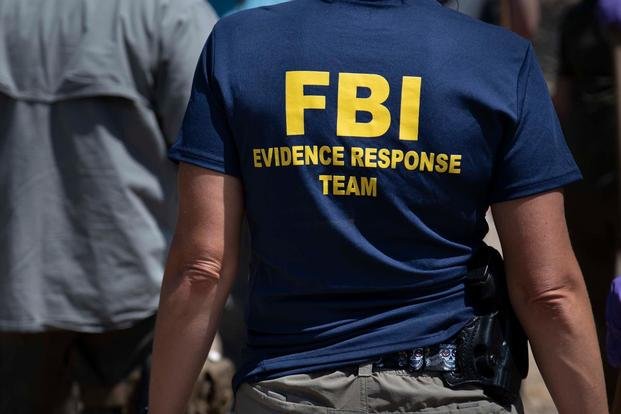Many diverse backgrounds are needed at the Federal Bureau of Investigation, especially in areas where veterans are likely to have experience.
On top of murders and other violent crimes, the FBI tackles money laundering, kidnappings and various forms of cyber crime. So it needs accountants and coders, along with gun-toting door kickers.
What it doesn't need are "profilers." That's not even a thing.
Read: How to Join the FBI After Leaving the Military
Today's film and television lineups are filled with shows about people with the ability to "look inside the mind of a killer" or "analyze the nation's most dangerous serial killers before they strike again."
In the real world, any FBI agent who can suddenly see the crime from the victim's point of view or get a perfect vision of exactly how the crime was committed while at the scene is probably going to undergo a mental health evaluation -- or get arrested for actually committing the crime.
Because that sort of magical clairvoyance only happens on TV.
As a matter of fact, that's exactly what the bureau wants you to know about special agents. It takes a lot more than magic visions to catch violent offenders. But inquiries happen so often, the bureau had to address it on the FBI's Frequently Asked Questions page:
"The FBI does not have a job called 'Profiler.' Supervisory Special Agents assigned to the National Center for the Analysis of Violent Crime (NCAVC) at Quantico, VA, perform the tasks commonly associated with 'profiling.' Despite some popular depictions, these FBI Special Agents do not get 'vibes' or experience 'psychic flashes' while walking around fresh crime scenes."
The agency apparently gets so many questions about becoming a "profiler" that it had to add a disclaimer about it to its FAQ page. But those still interested in crime scene and criminal behavior analysis should keep reading:
"In reality, it is an exciting world of investigation and research -- a world of inductive and deductive reasoning, crime-solving experience and knowledge of criminal behavior, facts and statistical probabilities."
The actual job is called criminal behavioral analyst, and using a mixture of psychology and good old-fashioned police work, they help the FBI and local law enforcement generate leads based on the type of person who commits a particular crime.
Retired FBI behavioral analyst Jim Clemente sat down with Wired magazine to talk about some of the skills and tasks the FBI site mentions that are commonly associated with "profiling." He was a supervisory special agent in the Behavioral Analysis Unit, which is part of the NCAVC. There, they study violent and sexual crimes committed across the U.S.
Essentially, the unit is researching lessons learned from crimes committed elsewhere (along with the criminals who committed those kinds of crimes) in order to apply those lessons to unsolved cases, giving FBI special agents the benefit of that hindsight.
"We help out where forensics fail," Clemente says in the interview. "If we look at how the crime was committed, that leads us to why the crime was committed. And that leads us to who committed the crime ... and it helps us hunt them down."
Based on criminal interviews and existing research, the "profilers" study the psychology behind why certain serial killers, kidnappers and other violent offenders commit their crimes -- and what goes through their minds as they commit them.
"Criminal profiling is basically reverse-engineering a crime," Clemente says. "The choice of the victim, the crime scene, the organization level and then pre- and post-offense behavior. Together, all those things tell us the kind of person who committed the crime."
If you still love the idea of being a real-world "profiler" -- also known as a criminal behavioral analyst -- apply to join the FBI. If you love true crime from the point of view of a "profiler" with all of the research and none of the magic visions, Clemente is co-host of "Real Crime Profile," a true-crime podcast distributed by Wondery.
Want to Know More About Veteran Jobs?
Be sure to get the latest news about post-military careers, as well as critical info about veteran jobs and all the benefits of service. Subscribe to Military.com and receive customized updates delivered straight to your inbox.












